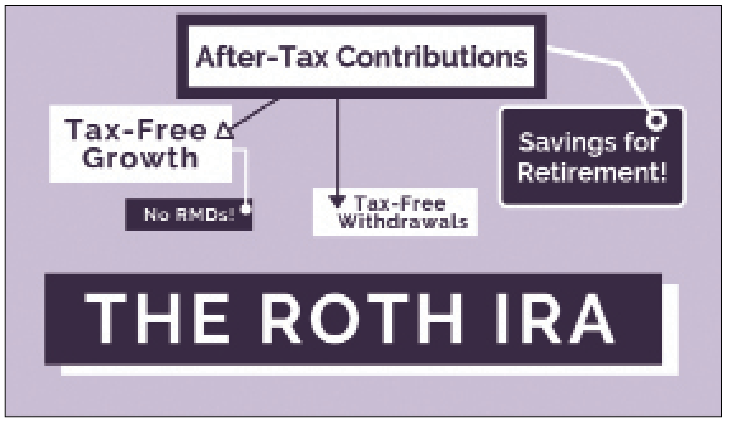
The COVID-19 pandemic has shaken up nearly every aspect of American life. To say it’s been a difficult time would be an understatement.
However, difficult times may open doors to new possibilities. Businesses are changing their ways of operating, and individuals are exploring new avenues for investment. It may be time for you to consider some opportunities, as well. One consideration is a Roth conversion.
What Is A Roth Conversion? A Roth conversion refers to the transfer of an Individual Retirement Account (IRA), either Traditional, SIMPLE, or SEP-IRA, into a Roth IRA. With Roth IRAs, you pay tax on the money before it transfers into the account.
One benefit to having your money in the Roth IRA is that, unlike a Traditional IRA, you currently are not obligated to take Required Minimum Distributions (RMDs) after you reach age 72 (RMDs would be required to any non-spousal beneficiaries, however).
Another benefit is that since the money was taxed before going into the Roth IRA, any distributions are tax-free. Keep in mind that tax rules are constantly changing, and there is no guarantee that Roth IRA distributions will remain tax-free.
Why Go Roth In 2020? In the face of the market downturn after the COVID-19 outbreak, you may be in a unique financial situation. For example, suppose you have an IRA account that was worth $1 million before the downturn, but it’s currently worth $800,000.
Perhaps your income has also decreased, potentially putting you in a lower tax bracket. Maybe you own one or more businesses, such as restaurants, that have been closed. You may not yet know if these businesses will be opening again in 2020. Your income could hypothetically be considerably lower this year than last year. But, this may present an opportunity. Less earned income may mean lower total taxes due on a Roth conversion, especially if the overall account value has dropped.
Keep in mind, this article is for information purposes only and is making an assumption on an IRA account’s value and applying a hypothetical drop in earned income. We recommend you contact your tax or legal professional before modifying your retirement investment strategy.
No Turning Back. While this may be a good time for you to consider converting to a Roth IRA, remember that there’s no turning back once you do. The Tax Cuts and Jobs Act of 2017 decreed that Roth conversions could no longer be undone.
A Roth IRA conversion is a complicated process, and it’s wise to involve your trusted financial professional.q


